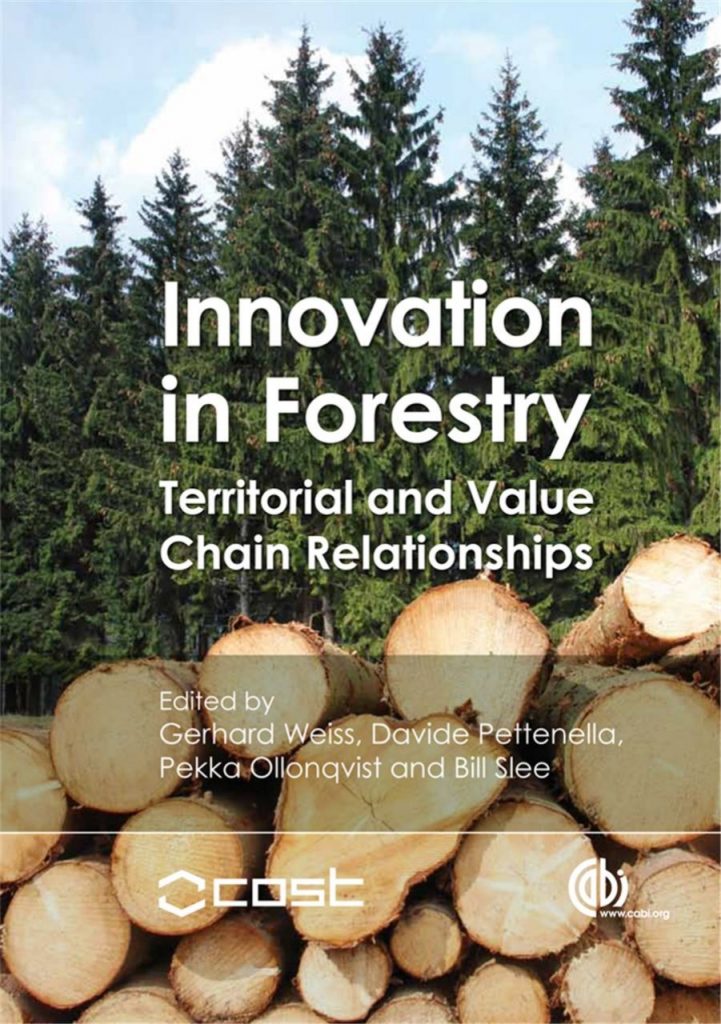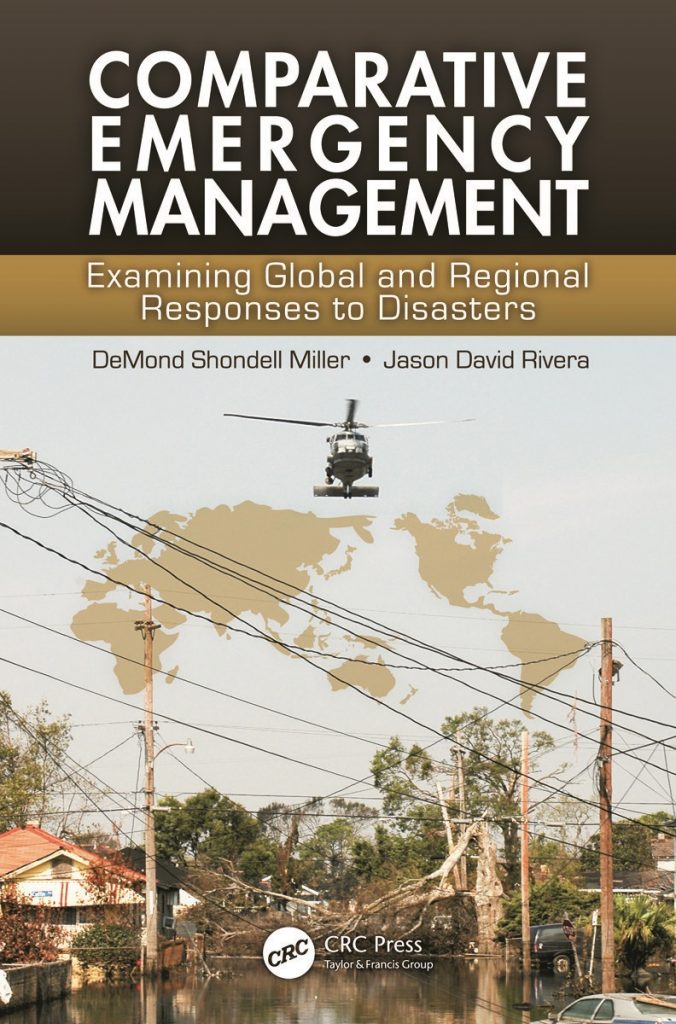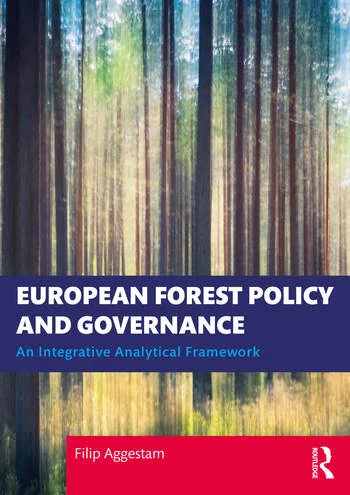Books
European Forest Policy and Governance: An Integrative Analytical Framework
This book provides a state-of-the-art overview covering distinct and relevant aspects of forest policy processes in Europe, presenting a fresh perspective on different analytical approaches, theories, and frameworks.
Set against the background of a changing world, driven by significant social, environmental, and economic developments, in Europe and elsewhere, there is a growing need for an improved understanding of forest governance and how to analyse the forest policymaking processes. This book introduces the reader to some of the key issues typically encountered in reviewing proposed as well as established forest policies.
Aggestam, F. (2025) European Forest Policy and Governance: An Integrative Analytical Framework. Oxfordshire: Routledge.

The Plan B for Romania’s Forests and Society
This book is a call for collective and integrated action to global leaders, investors, companies, scientists, governments, nongovernmental and intergovernmental organizations, funding agencies and the society at large to put Romania’s forests on a sustainable path. This vision is put forward by Romanian and international experts whose exceptional work is pivotal in aiding our understanding of how the circular-bioeconomy transformation can unfold.
Aggestam, F. (2022) Romanian Forest Policy in the EU Context. In Giurca, A. & Dima, D. P. (eds.) The Plan B for Romania's Forests and Society. Transylvania University Press.

Innovation in EU Forestries: a Science–Policy Dialogue
This chapter analyses a cross-sectoral discussion forum – a science-policy dialogue – held at the final conference of COST Action E51. The design of the forum was as a moderated fishbowl discussion with invited discussants and the audience. The aim was to discuss the problem situation and possible strategies for policy improvements among researchers and policy practice. The discussants included policy makers and stakeholders from research policy, forestry, forest industry and regional development. The discussion forum was video recorded. This enabled the extraction and review of all major issues raised throughout the discussion, and the transcription of parts of particular importance. The main questions were directed at the success and gaps of current policies and which policy improvements are needed in order to support innovations in the sector and for rural development. These questions were discussed for territorial goods and services, and for the wood value chains. Results suggest a need for improving the interface between research and practice. Support for innovation should move away from project-based support to long-term cooperation and collaborative learning, and from a focus on research to the support of the whole innovation process and better interaction of all parts of the innovation system. Policy measures need to define characteristics and address different types of micro-, small and medium-sized enterprises (SMEs) such as innovative front-runners and/or traditional firms. For the forest sector, it is also relevant that rural development policy considers all sectors that interact in the landscape, is multi-layered and stimulates connectivity and integration at and between the appropriate levels.
Aggestam, F. & Weiss, G. (2011) Innovation in EU Forestries: a Science–Policy Dialogue. In: Weiss, G., Pettenella, D., Ollonqvist, P., Slee, B. (Eds.), Innovation in Forestry: Territorial and Value Chain Relationships. CABI, pp. 294-302. [RIS file]

Critique of Stakeholder Participation and Decision-Making Processes Affecting the Design and Implementation of Transboundary Water Governance Projects Bordering Vulnerable/High Risk States: Lake Chad and Basin, Danube and Tisza River Basin
Using stakeholder participation and transboundary cooperation as a medium for analysis, this chapter explore their relevance to the concept of community-based disaster recovery and resilience. A brief overview of the relevant concepts employed throughout this study can be found in the appendices. The chapter presents two cases focusing on linking various aspects of participatory management with resilience and disaster recovery. Drawing conclusions in the context of international development interventions and the management of shared natural resources in risky ecosystems, the chapter presents a set of policy recommendations related to participatory management and transboundary cooperation.
Aggestam, F. & Hodge, S. (2011) Critique of Stakeholder Participation and Decision-Making Processes Affecting the Design and Implementation of Transboundary Water Governance Projects Bordering Vulnerable/High Risk States: Lake Chad and Basin, Danube and Tisza River Basin, in: Miller, M.S.R., D.J. (Ed.), Comparative Emergency Management: Examining Global and Regional Responses to Disasters. CRC Press, pp. 117-151. [RIS file]
